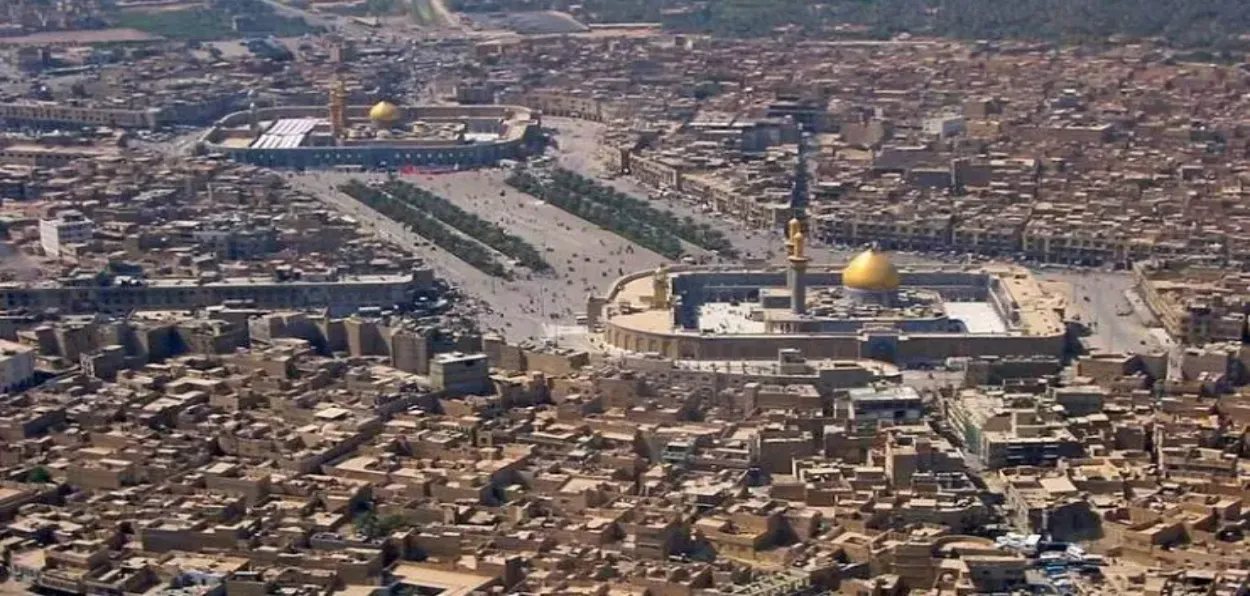
Eman Sakina
The Day of Ashura, observed on the 10th day of Muharram, the first month of the Islamic calendar, holds profound significance for Muslims worldwide. Its importance is rooted in history and religion as Sunni and Shia Muslims observe this period differently.
Friday Musings
Ashura is a day of historical remembrance and a time for Muslims to reflect on broader themes of justice, sacrifice, and steadfastness in the face of oppression. It serves as a powerful reminder of the values embodied by Prophets and martyrs, encouraging believers to uphold these principles in their lives.
Moses and the Israelites: The Day of Ashura commemorates the day Allah saved the Prophet Moses (Musa) and the Israelites from Pharaoh's tyranny by parting the Red Sea. Sunni traditions recount that when Prophet Muhammad migrated to Medina, he found that Jews were fasting on this day to mark this event.
Muhammad recommended fasting on this day and mentioned, "We are closer to Moses than you," encouraging Muslims to fast on the 9th and 10th or the 10th and 11th of Muharram to distinguish themselves from the Jewish practice.
Some may engage in additional prayers and recitations of the Quran, reflecting on the themes of piety and gratitude.
Charitable Acts: Perform acts of charity and kindness. Providing for those in need, feeding the poor, and supporting philanthropic causes are ways to embody the spirit of Ashura.
Community Service: Participate in community service activities to promote social welfare and unity.
Ashura is most significant for Shia Muslims as it marks the martyrdom of Husayn ibn Ali, the grandson of Prophet Muhammad, at the Battle of Karbala in 680 AD. Husayn's stand against the Umayyad Caliph Yazid I, which led to his death, is seen as a symbol of resistance against tyranny and injustice. The tragic event deeply influences Shia history, theology, and identity.
Shia Muslims observe Ashura through various mourning rituals to honour Husayn ibn Ali and his companions. These include:
Majlis: Gatherings where the story of Karbala is recounted, and the virtues and sacrifices of Husayn extolled.
Latmiyah: Ritual chest-beating and recitation of elegies to express grief and solidarity with Husayn's suffering.
Processions: Public processions, often involving reenactments of the Battle of Karbala, where participants may also engage in self-flagellation (Tatbir) as a form of mourning and solidarity.
Visiting Shrines: Pilgrimage to the shrine of Husayn in Karbala, Iraq, is a significant act of devotion during Ashura. Millions gather to pay their respects and reaffirm their commitment to Husayn's ideals.
Acts of Charity: Distributing food and performing acts of charity in memory of Husayn’s sacrifice and the hardships endured by his family and followers.
Processions: Join public processions that often include reenactments of the Battle of Karbala. Participants wear black clothing, carry flags, and chant slogans commemorating Husayn’s sacrifice.
Symbolic Gestures: Some processions involve carrying symbolic representations of Husayn’s horse or other items related to Karbala.
Pilgrimage: If possible, make a pilgrimage to the shrine of Husayn in Karbala, Iraq. Those who can travel visiting local shrines and mosques dedicated to Husayn is a common practice.
Vigil: Spend time in reflection and prayer at the shrine, offering tributes and expressing devotion.
Acts of Charity: Prepare and distribute food to commemorate the hardships faced by Husayn and his followers. This includes organizing communal meals and providing for the less fortunate.
Supporting the Needy: Engage in charitable activities that support the needy, reflecting Husayn’s values of justice and compassion.
Personal Reflection: Reflect on Husayn’s Legacy: Spend time reflecting on the principles of justice, resistance against oppression, and steadfastness exemplified by Husayn ibn Ali.
Educate others about the significance of Ashura and share the lessons of Karbala through discussions, literature, and social media.
Ashura is a day of historical remembrance and a time for Muslims to reflect on broader themes of justice, sacrifice, and steadfastness in the face of oppression. It serves as a powerful reminder of the values embodied by Prophets and martyrs, encouraging believers to uphold these principles in their lives.
For Shia Muslims, Ashura reinforces communal identity and collective memory, fostering a sense of unity and resilience. For Sunni Muslims, the day underscores the continuity of prophetic traditions and the importance of piety and atonement.
The Day of Ashura is a multifaceted observance with deep religious and cultural implications, uniting Muslims in remembrance and reflection, while also highlighting the diversity of practices and beliefs within the Islamic tradition.
